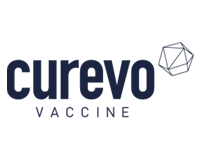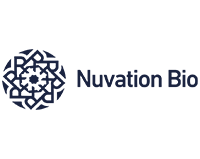The life sciences industry is one of the most innovative and rapidly changing industries in the world. But with innovation comes challenges, especially when it comes to compliance with regulations. Life sciences law firm play a vital role in helping life sciences companies navigate the complex regulatory landscape and stay compliant.
The Unique Challenges of The Life Sciences Industry
The life sciences industry is unique in a number of ways.
- First, it is highly regulated. There are a number of federal, state, and international regulations that govern the development, testing, manufacturing, and marketing of life sciences products. These regulations can be complex and difficult to understand, and they can change frequently.
- Second, the life sciences industry is constantly evolving. New technologies and treatments are being developed all the time, and the regulatory landscape is constantly changing to keep up. This can make it difficult for life sciences companies to stay compliant.
- Third, the life sciences industry is global. Life sciences companies often operate in multiple countries, and they need to comply with the regulations of each country. This can be a daunting task, especially for small and medium-sized companies.
The life sciences industry is constantly balancing innovation with regulation. On the one hand, life sciences companies need to be innovative in order to develop new products and treatments that can improve people’s lives. On the other hand, they need to be compliant with regulations in order to protect public health and safety.
This balance can be difficult to achieve, but it is essential for the success of the life sciences industry. Life sciences law firms can help life sciences companies strike this balance by providing legal advice and counsel on a wide range of regulatory issues.
Understanding Life Sciences Compliance
In the United States, the Food and Drug Administration (FDA) is the primary regulator of life sciences products, while the European Medicines Agency (EMA) is the primary regulator in Europe.
The regulatory landscape is constantly changing, as new regulations are enacted and existing regulations are updated. This can make it difficult for life sciences companies to stay compliant.
Common compliance challenges in research, product development, and marketing
Some of the common compliance challenges in life sciences research include:
- Adhering to Good Laboratory Practice (GLP) standards: GLP standards are designed to ensure the quality and reliability of data generated in laboratory studies.
- Obtaining the necessary permits and approvals: In order to conduct research, life sciences companies may need to obtain permits and approvals from the FDA, EMA, or other regulatory agencies.
- Protecting human subjects: Life sciences companies must protect the safety and privacy of human subjects involved in research.
Some of the common compliance challenges in life sciences product development include:
- Conducting clinical trials: Clinical trials are conducted to test the safety and efficacy of new drugs and medical devices. Life sciences companies must comply with strict regulations governing clinical trials.
- Obtaining marketing authorization: In order to market a new drug or medical device in the United States, life sciences companies must obtain marketing authorization from the FDA.
- Managing post-market safety surveillance: Once a drug or medical device is marketed, life sciences companies must continue to monitor its safety and effectiveness.
Some of the common compliance challenges in life sciences marketing include:
- Providing accurate and truthful information: Life sciences companies must provide accurate and truthful information about their products in all marketing materials.
- Avoiding misleading or deceptive advertising: Life sciences companies must avoid misleading or deceptive advertising for their products.
- Complying with social media regulations: Life sciences companies must comply with regulations governing the use of social media to market their products.
The Role of a Life Sciences Law Firm
Here are some of the roles that a life sciences law firm can play:
- Navigating complex regulatory environments: Life sciences law firms can help life sciences companies understand and comply with the complex regulatory environment in which they operate. This includes understanding the regulations governing research, development, manufacturing, and marketing of life sciences products.
- Assisting in patent filing and protection: Life sciences law firms can help life sciences companies file and protect their patents. This is important for protecting the company’s intellectual property and preventing competitors from copying its products.
Promoting Innovation Within The Bounds of The Law
Here are some of the ways that law firms can promote innovation while ensuring adherence to the law:
- Stay up-to-date on the latest legal developments: Law firms need to stay up-to-date on the latest legal developments in order to advise their clients on how to innovate within the bounds of the law. This includes understanding new regulations, court decisions, and changes in case law.
- Work with clients to identify and assess risks: Law firms can help their clients identify and assess the risks associated with innovation. This includes understanding the potential legal risks, as well as the risks to the company’s reputation and financial stability.
- Develop risk mitigation strategies: Law firms can help their clients develop risk mitigation strategies. This includes developing policies and procedures to manage risk, as well as insurance and indemnification agreements.
By following these guidelines, law firms can help their clients to promote innovation while ensuring adherence to the law. This can help clients to stay ahead of the competition, develop new products and services, and grow their businesses.
Staying Ahead: Continuous Education and Collaboration
- Continuous education: Law firms need to provide their lawyers with continuous education in order to stay up-to-date on the latest legal developments. This includes attending seminars, reading journals and publications, and participating in online courses.
- Collaboration: Law firms can collaborate with other law firms, industry experts, and regulators to stay ahead of the curve. This can help to ensure that lawyers have access to the latest information and that they are working with the latest thinking on legal issues.
- Technology: Law firms can use technology to stay ahead of the curve. This includes using technology to research legal issues, to draft documents, and to communicate with clients.
- Proactivity: Law firms should be proactive in identifying and addressing emerging legal issues. This can help to prevent problems from arising in the future.
- Innovative thinking: Law firms should be open to innovative thinking. This can help them to develop new ways of providing legal services and to stay ahead of the competition.
By following these guidelines, law firms can stay ahead of the curve and provide their clients with the best possible legal advice.
Conclusion
The life sciences industry is constantly evolving, and specialized law firms like Lovell Law Group play an integral role in shaping its future. These law firms have the expertise and experience to help life sciences companies navigate the complex regulatory landscape, protect their intellectual property, and resolve disputes. They also help life sciences companies to innovate and develop new products that can improve people’s lives.
As the life sciences industry continues to grow and evolve, the need for specialized law firms will only increase. The law firms like Lovell Law Group will be essential for helping life sciences companies to achieve their goals and to make a positive impact on the world.





